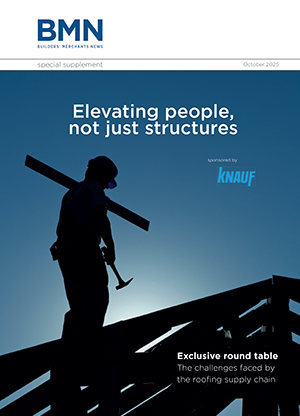In light of low take-up and concerns about industry standards, there will be no further funding to the Green Deal Finance Company, the Department for Energy & Climate Change (DECC) announced on 23 July, 2015.
Energy & Climate Change Secretary Amber Rudd said the government will work with the building industry and consumer groups on a new value-for-money approach.
Ms Rudd also announced that the government will stop any future funding releases of the Green Deal Home Improvement Fund.
”Future schemes must provide better value for money, supporting the goal of insulating a million more homes over the next five years and the government’s commitment to tackle fuel poverty,” she said.
This decision has no impact on existing Green Deal Finance Plans or existing Green Deal Home Improvement Fund applications and vouchers.
The announcement comes as part of the government’s wider review of energy policies. Ms Rudd has confirmed that her first priority is to get spending under control.
“We are on the side of hardworking families and businesses – which is why we cannot continue to fund the Green Deal,” said Ms Rudd.
“It’s now time for the building industry and consumer groups to work with us to make new policy and build a system that works.
“Together we can achieve this government’s ambition to make homes warmer and drive down bills for 1m more homes by 2020 – and to do so at the best value for money for taxpayers.”
The government has commissioned an independent review led by Peter Bonfield to look at standards, consumer protection and enforcement of energy efficiency schemes and ensure that the system properly supports and protects consumers.
Current policies including the Energy Company Obligation (ECO) scheme will continue to provide support this year to low-income and vulnerable households, reflecting the fact that ECO delivered 97% of home improvements in the last two years.
DECC will work in partnership with the Department for Communities and Local Government to improve the UK’s existing housing stock. The longer-term future of the ECO scheme will be part of these discussions around a new, better-integrated policy.
Brian Berry, chief executive of the Federation of Master Builders (FMB), said the government’s announcement was the “final nail in the Green Deal’s coffin”.
“The Green Deal was the greatest flop of the last Parliament – it failed spectacularly in its mission to incentivise millions of house holders to improve the energy efficiency of their homes.”
However, he said that government would have been wise to reform, rebrand and relaunch the Green Deal rather than scrap it altogether.
Mr Berry said: “What’s clear is that the need to improve the energy efficiency of our properties is an increasingly pressing priority, but the government is showing very little leadership or ambition. The goal of insulating a million more homes over the next five years is a meagre target when you consider that around 5m homes were provided with energy efficiency improvements through various schemes over the past five years.
“Although the Green Deal was disappointing in terms of what it achieved, it demonstrated that the government was serious about reducing the carbon emissions from our homes. As we get closer to the 2050 carbon reduction target, the government should be increasing investment in this area but instead, ministers have side lined energy efficiency – filing it under “too difficult and too expensive”.
Mr Berry concluded: “The government and industry should not be defeated by the poor results driven through the Green Deal. Instead we must learn the lessons and move forward. Investing in our existing homes is the best way to drive up jobs and growth while driving down fuel poverty and carbon emissions. There are lots of measures and incentives which could kick-start activity in this area – the government should provide home owners with zero interest loans to make their properties energy efficient. This move could generate more tax revenue for the Treasury than it costs to subsidise, an approach which has worked well in Germany so why not the UK?”
The British Property Federation (BPF) has urged the government to ensure that its failure does not impact on the ability of property owners to comply with the incoming Minimum Energy Efficiency Standards (MEES).
The BPF is concerned that there are many property owners who would have been relying on the Green Deal to finance energy efficiency improvements and reach MEES, but has welcomed the announcement that those who have existing Green Deal plans will not be affected by the announced action.
Ian Fletcher, British Property Federation director of policy (real estate), said: “It won’t come as a surprise to many to see that the government has decided to end its financing of the Green Deal Finance Company.
“Many will use this as an opportunity to bemoan the scheme and its failings, but of greater importance is where we go from here. The end of the Green Deal will impact on many other policy areas including the MEES passed by the previous government, which was designed to dovetail with a pay as you save energy efficiency scheme.
"We are concerned that without a functioning pay as you save scheme, the premise set out in the regulations that meeting energy efficiency targets should come at no upfront cost to the property owner is now in jeopardy.
"The end of the Green Deal should not be associated with an end to the government’s support for helping people to achieve warmer homes that are cheaper to heat and better for the environment and we look forward to working with officials on its replacement, but engagement needs to proceed quickly in order that we do not lose momentum or capacity in the market.”








